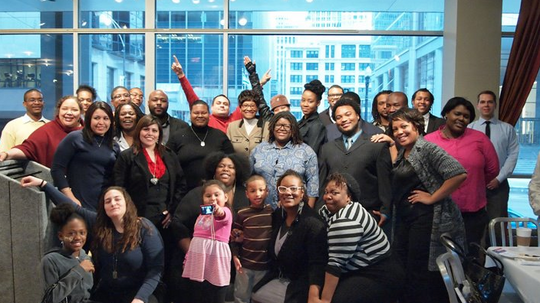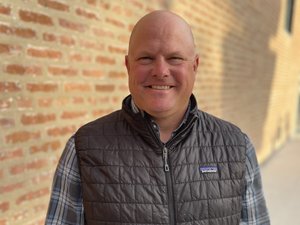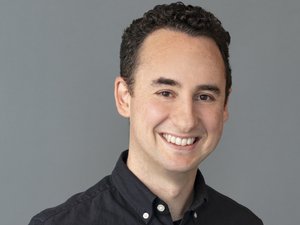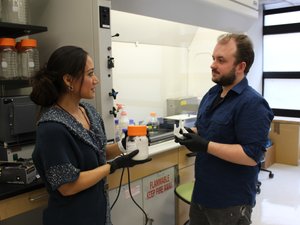

i.c. stars, a Chicago-based non-profit, provides opportunities for low-income adults to develop skills in technology and business through immersion training and mentorship, jumpstarting tech careers for change-driven, future leaders.
One of the organization's alumna, Brandies Dunagan, recently interviewed Sandee Kastrul, President and Co-Founder, on behalf of Chicago Inno about i.c. stars, community impact, the local tech scene, and what's next.
“What if our expectation of ‘inner city young people’ was dramatically increased and we expected not only for them to be successful but we expected this next generation to be leaders.”
Brandies Dunagan: When you and your co-founder Leslie started i.c.stars, did you know this kind of program was needed and what pain it would solve in the community or did it develop as you went along. Was it lean, or long and hard?
Sandee Kastrul: We started with the question of “what if?” What if everyone could see stars? I was coming from an education and workforce development background so I was already serving the community along with our other co-founder. What we saw was this great need in the community for community leaders, for this idea recognizing resiliency in people who had overcome adversity as an asset and that in the resiliency toolkit there is reciprocity, critical thinking skills, creativity. The question was what if we taught technology, leadership and business and that the systems thinking, the process and methodology embedded in technology and software development could also be applied to community leadership.
We founded i.c.stars in 1999 when companies were now competing on a global scale because of the internet, so the next part of that what if question was what if our startups and our established companies were hiring and training talent from the inner city? What if companies could see young people who were resilient as the best asset to their company, to innovation and to technology work that they could find? What if companies saw i.c.stars as a great source of talent and communities saw i.c.stars as a great source of leaders? This formed our model.
Brandies: Thanks Sandee. It makes me also think “what if communities saw themselves in i.c.stars?” How did you discover the correlation between technology and civic engagement?
Sandee: I love technology because it’s creative. It doesn’t matter what you look like because it is a meritocracy. Technology was also something that could really sell this to young people, because it’s a shift from being a consumer of technology to being an innovator. If you’re a programmer you get to “write the rules” and for many of us this is maybe the first time that we are literally flipping the script to being the “makers.”
Brandies: Community engagement is a core part of what i.c.stars is. Is that a requirement for the program participants and if so, how do you predetermine their desire to lead in their communities?
Sandee: It is an expectation, and that’s why we teach leadership and technology in the same frame. Everyone’s journey with the skills that they’ve developed at i.c.stars is going to be different. Some people will be hardcore developers working in a Fortune 500 company and other people will be user experience folks working in a startup.
We expect similar outcomes when it comes to community impact. Some of our alumni are service leaders and they’re teaching, mentoring, and staying in the communities that they grew up in. This in itself is community impact. The impact on perceptions within those communities. To say I am here, and to be visible, and to provide another alternative to what’s possible.
Some of our alumni are business creators and through their entrepreneurism they create change in the community. They’re starting companies in their communities and hiring from the community and being visible that way. Some of our alums look at policy as a way that they want to share their gift, so they’re working on things from a systems level; they’re doing advocacy work or sitting on boards and working to change policies that hurt our communities. We can’t predetermine what i.c.stars alumni will do or what they’ll go into, but we can certainly highlight some of our alums that are doing really cool things as a model or as an inspiration for the future stars with us at i.c.stars and with us in our communities.
There are a couple of notable start-ups founded by alumni that I’m proud of. Jerome Dishman of Cycle 4, who worked at Allstate in the command center, has an interesting model. He has always been entrepreneurial and his co-founder Emile Cambry Jr., started up Blue 1647. Blue1647 is an incubator in Chicago’s Pilsen neighborhood that is training community organizers, geeks, makers, everyone around technology, leadership and social justice. Jerome the first CTO in the alumni group and I’m so proud of him.
Another alum Randy Ellis is also an entrepreneur who took another direction. Randy started out at Cars.com after his intership working in development and UX. He is now the founder and CEO of LocalLux. They source local products and services through apps to enable customers to support local businesses. They are currently in Chicago but are expanding to other cities already.
Both Randy and Jerome worked in enterprise level companies, learned all that they could, and then applied those things to their entrepreneurial endeavors. Whereas there’s also alumni like Vera Shabazz who is running an organization, a non-profit called Virginia’s House, working with survivors of domestic violence and creating a safe place for the women and their families to get back on their feet. . She really represents that what we call a service leader, where she has a full time job working at United Airlines’ help desk but she’s also spending every moment of her free time building space and respite for people going through transformation.
Brandies: I’ve heard this question asked a million times; can you teach leadership?
Sandee: No, we develop leaders. You can teach leadership principles, but to me teaching leadership or developing leaders is like gardening. You plant these seeds and you nurture them and you’re not going to yield anything for a whole other season. Sometimes it’s two years before it sprouts, but once it takes root it’s on its own course and the best thing you can do is be a witness to that development and make sure they have the right environment to grow. We’re not “seed creators,” that is why we identify and develop leaders.
Our premise is that resilient folks coming from the inner city have already overcome obstacles. They’ve built their own toolkit and what we do is provide a context to unpack that toolkit and sometimes that context is business, sometimes it’s community leadership, and sometimes it’s entrepreneurship. We’re always presenting interesting business and community problems for folks to solve and our education model is one that we debrief after it happened, assuming that resilient people already have what it takes.
“I don’t think that the startup community is doing enough, and forgive me if that hurts folks’ feelings but when we go into these spaces and we are the only people of color, it doesn’t make us want to stay.”
Brandies: It’s awesome that you have identified that people coming out of inner cities as being resilient and that being the key characteristic for being successful leaders. Speaking of the people that you identify with extraordinary potential for leadership, how do you find the right candidate and what is the interview process?
Sandee: First and foremost we are looking for resilient, talented, motivated people who want to impact change. We see leadership as making opportunities for others. We’ll see four hundred people apply and select twenty who will begin an i.c.stars internship - so it’s very selective. Part of what we look for is an aptitude for technology, problem solving, and critical thinking skills. We also look for attitude, how folks are motivated. At the end of the day you’re going to be here 12-15 hours, solving the same bug for hours, and if you’re not motivated there is no way you’re going to stick with it. We often see success with the people who have family pictures on their desk. The tend to stick to it a lot longer than someone who is thinking about their video game, because this is bigger than them.
The question “what are you fighting for” is key. Being able to identify what you stand for as a leader has everything to do with the motivation and drive to learn technology. At the end of the process we conduct an interview made up of seven essential questions to evaluate resiliency and to date this has been the most profound measure of not only success in the i.c.stars program, but success as a community leader and success as an IT person. It really is an amazing marker.
Brandies: I remember you wrote a blog about civic responsibility and innovation that spoke to stewardship and how our stewards are missing. Chicago has this great start up scene, we’re super incubator focused, launching and accelerating businesses into the market. Do you think i.c.stars alumni have a responsibility to their community to give back and do you think that the tech scene in Chicago is giving back enough?
Sandee: This is another what if question. What if our expectation of ‘inner city young people’ was dramatically increased and we expected not only for them to be successful but we expected this next generation to be leaders. How would that impact everything, from our media, to our education system and to the jobs that we are training folks for? How would it impact the incubators and startups in our city that are constantly overlooking minority folks in terms of how they recruit and how they make opportunities for us?
No, I don’t think that the startup community is doing enough, and forgive me if that hurts folks’ feelings but when we go into these spaces and we are the only people of color, it doesn’t make us want to stay. If as a company we are only recruiting from the top five engineering schools in the country, how can we expect our organization to have any diversity? If as an incubator of startups and innovation we are charging so much money that the barrier to entry is impossible for someone coming from the west side of Chicago, how can we possibly expect true innovation? Diversity is the primary driver of invention and until we realize that if you have no diversity of experience and perspective at the table, you’re going to create more ways for people with privilege to find more comfort in their privilege. As a society we are about to get uncomfortable and in order to innovate in that environment we have to overcome the obstacles to achieving diversity. What if we changed our entire trajectory about what it meant to innovate, to work, to start, to make, to educate and to dream?
Brandies: I can’t even pretend that my brain didn’t just explode just then, that was some heavy knowledge you just threw out there Sandee. Switching gears here, what if i.c.stars was not just in Chicago? Forget what if, is i.c.stars going to expand into other cities?
Sandee: That’s what we’re working on next. We have three cities that we’re working with to take this very grassroots approach to expansion in four phases. After each phase there’s a sort of evaluation period to see if this makes sense. The first phase is building community to support and sustain an organization, the second phase is a pop up installation of i.c.stars, sort of a pilot where we just pop in and bring it down, this would really give visibility to the model in other cities. The third phase is to do a permanent installation. The fourth and last phase is to build a social enterprise. The whole model is about empowering each city to own the i.c.stars framework of project based learning and leadership and technology training. To make it theirs and to infuse their culture into it. In addition, we are looking at other countries that are very excited about adopting the i.c.stars model, that’s a lot of fun to develop too.
We are also working with different community based organizations (CBO’s) in Chicago to do “train the trainer” models. These CBO’s have community technology centers. We work with them on how to really deliver project based learning as we know that this approach is essential to students truly absorbing technology curriculum. We have been really successful here in Chicago with a 90% placement rate, a 400% earnings increase and 32 home owners in our alumni association. To quote Carl Sagan in a funny way, “it would be an awful waste of space.” Of course Carl was talking about the universe and life, but if you ask me it’s all stars.








